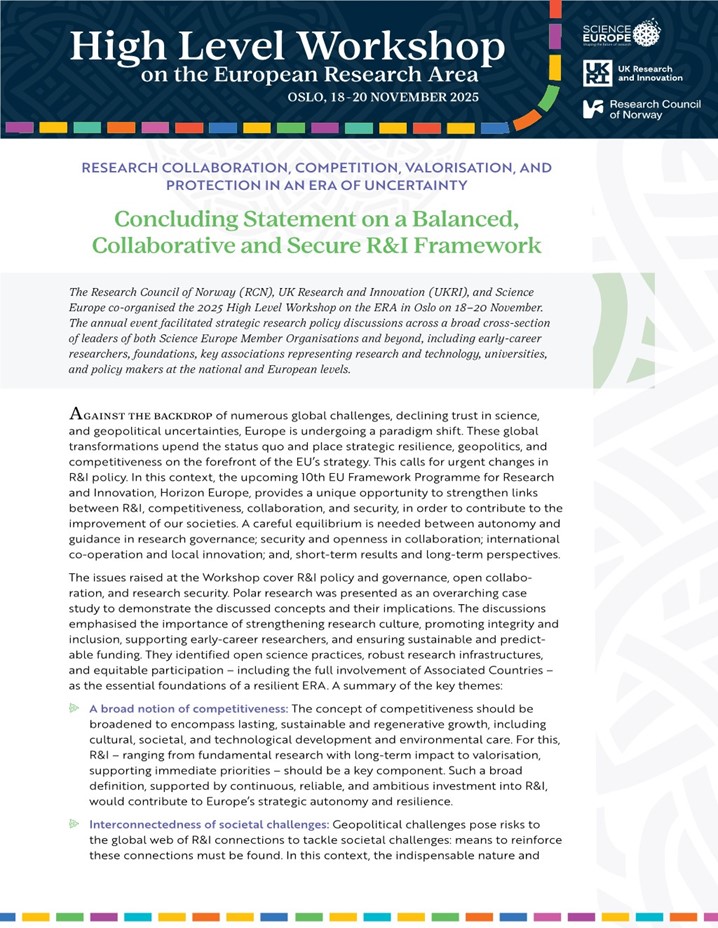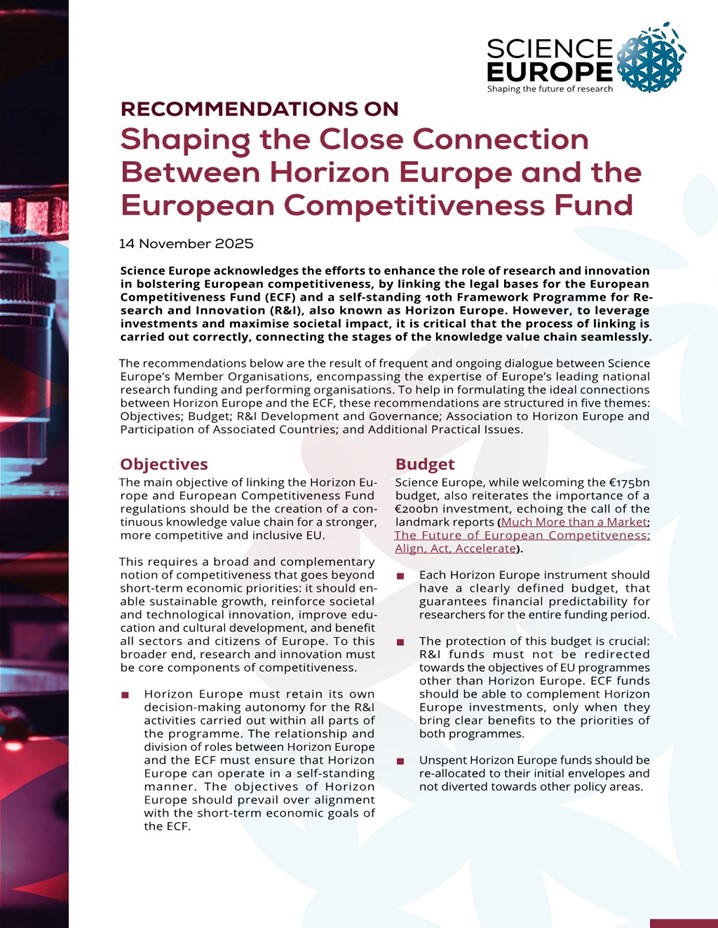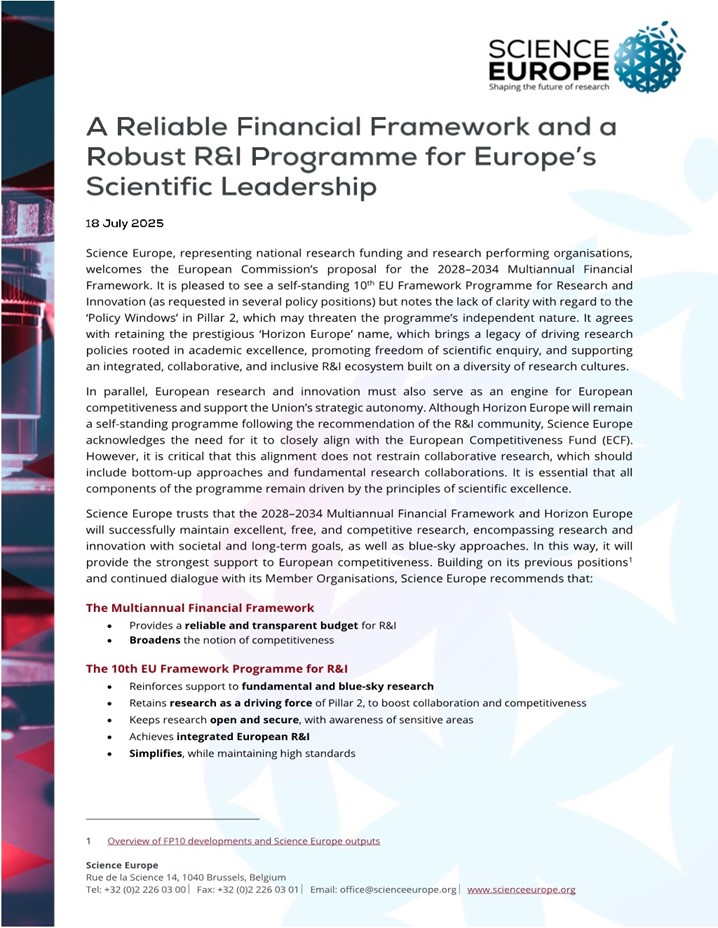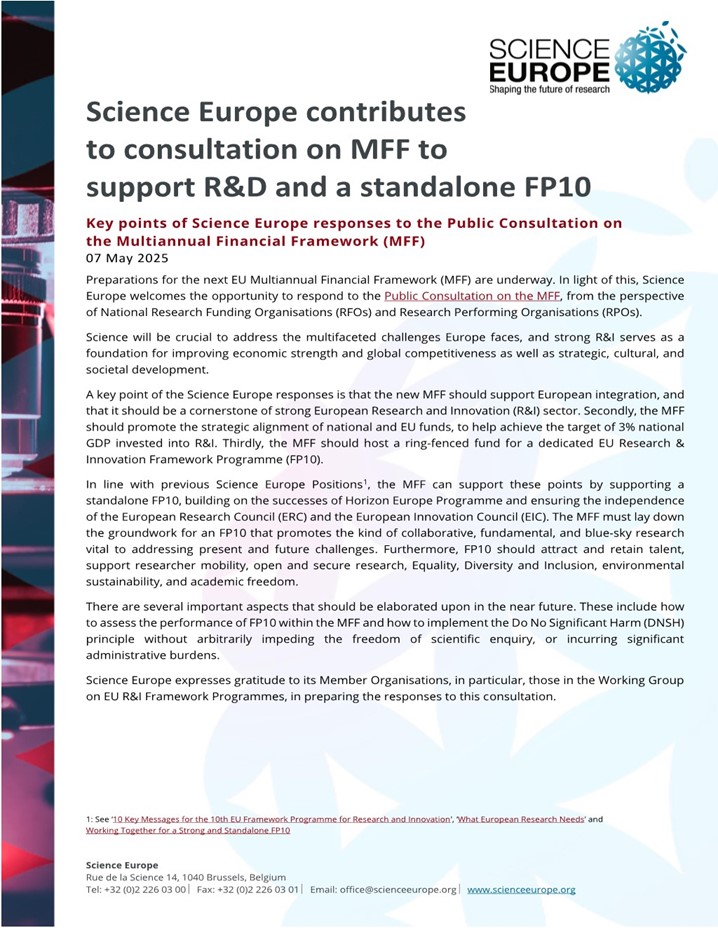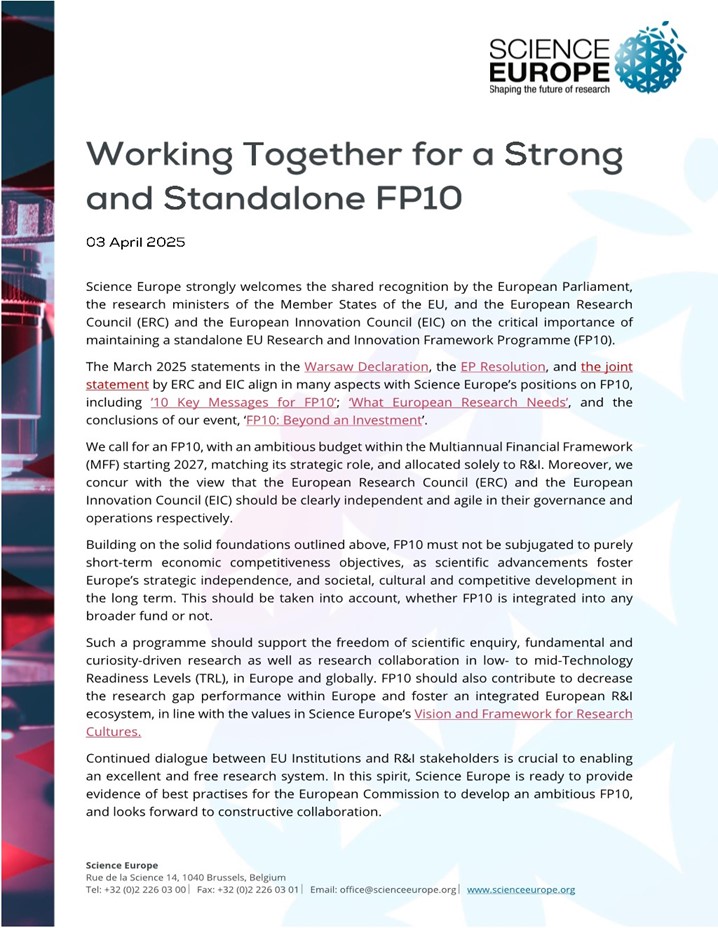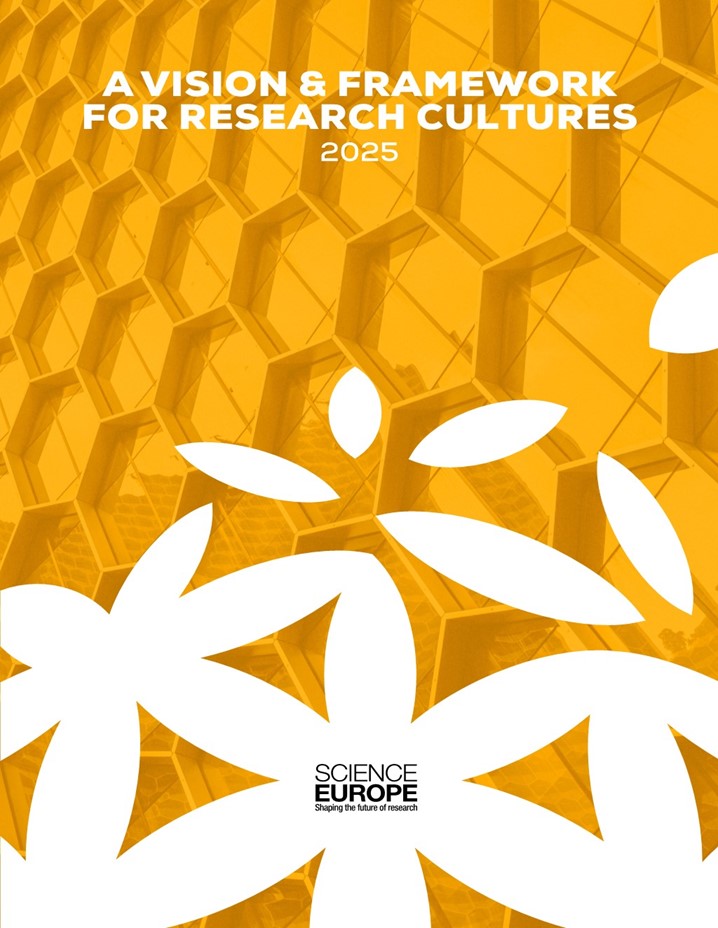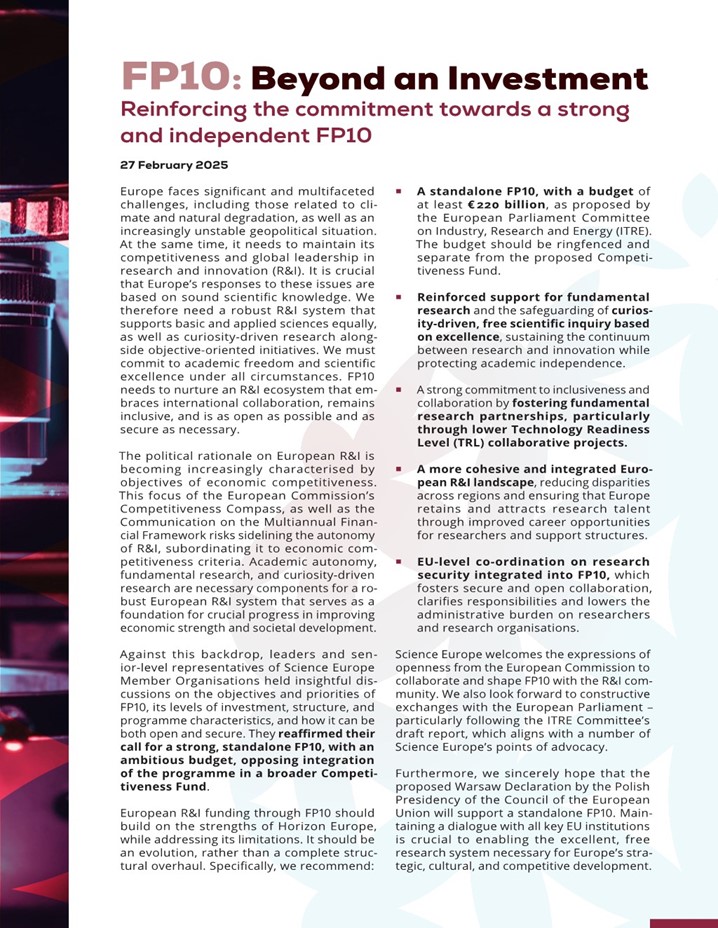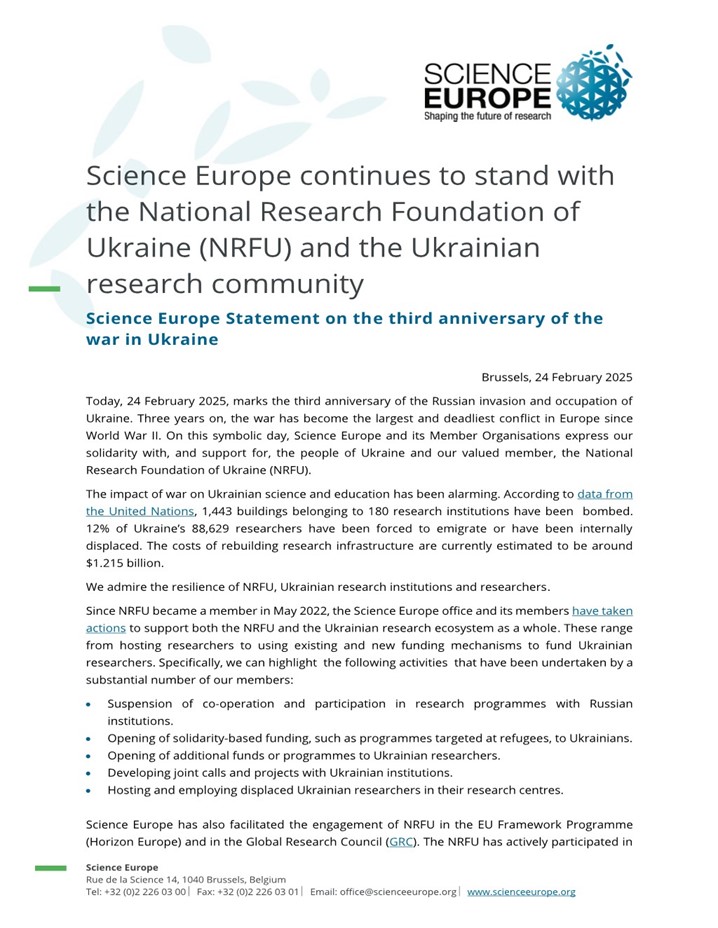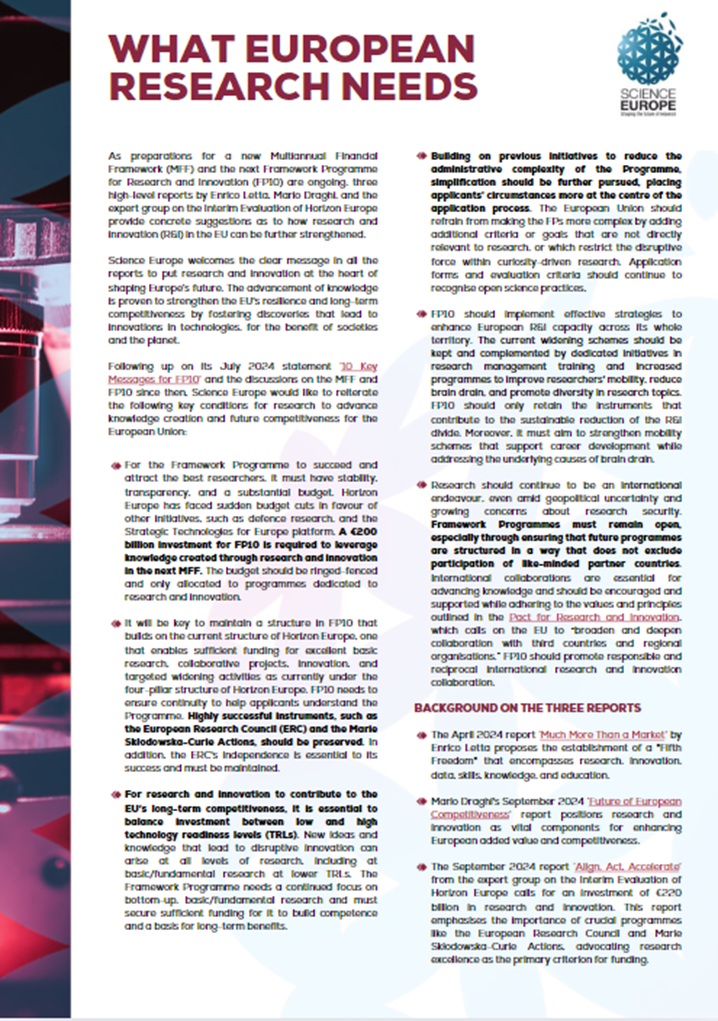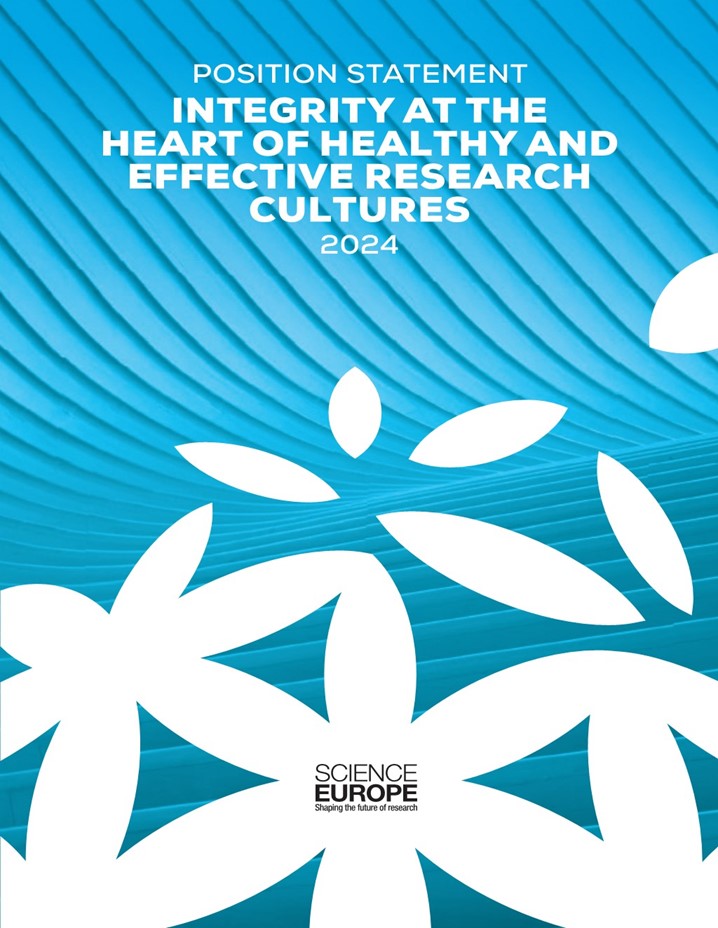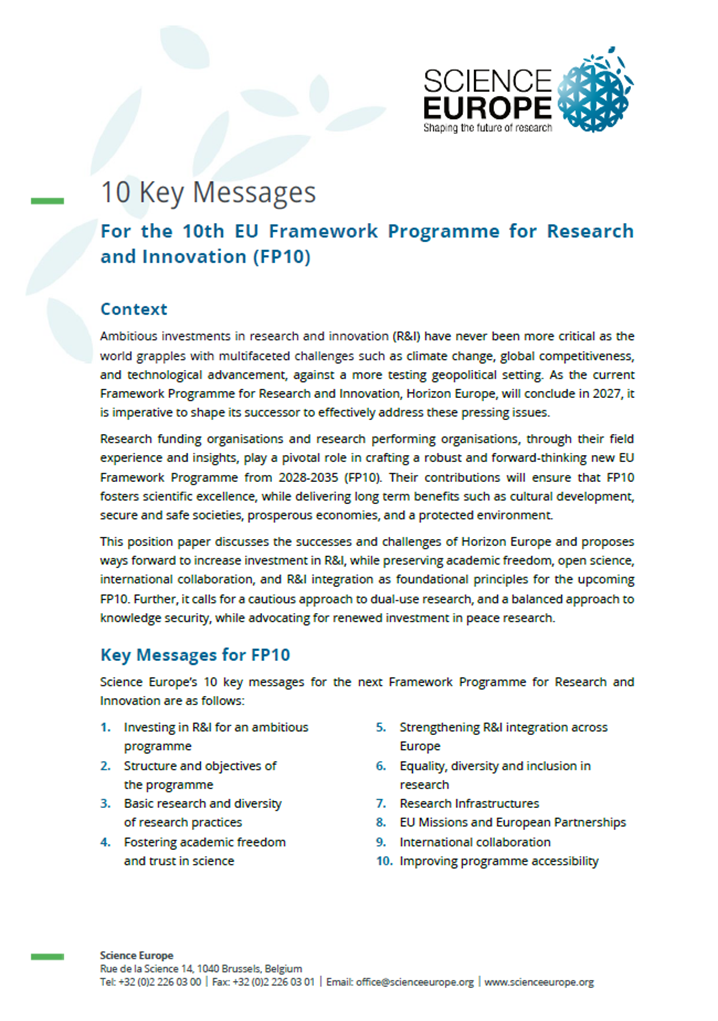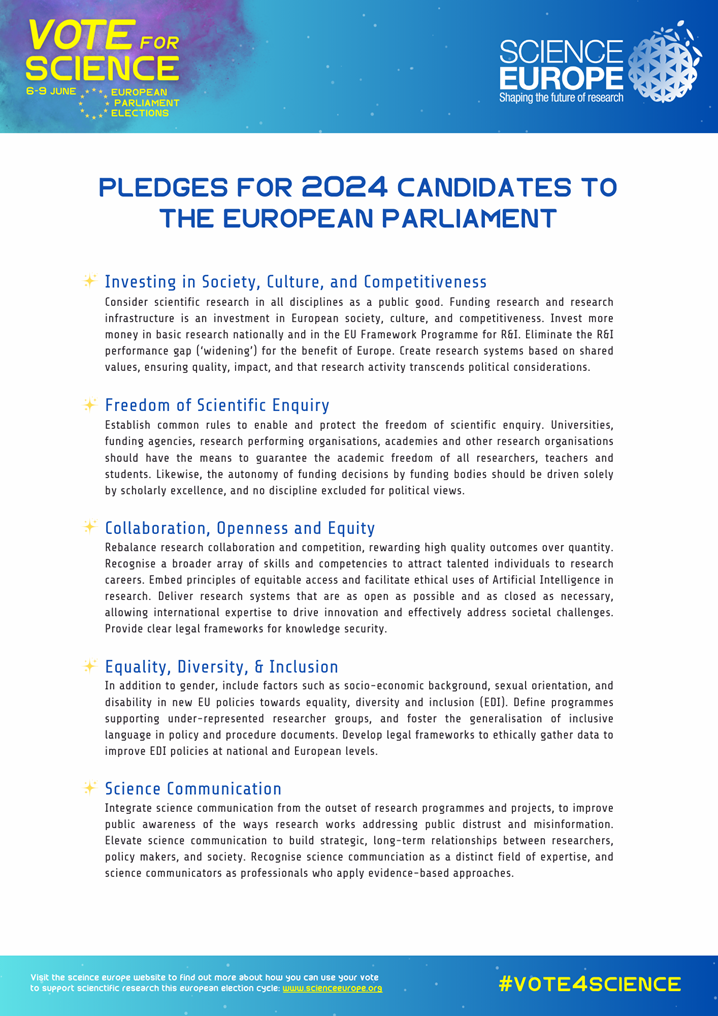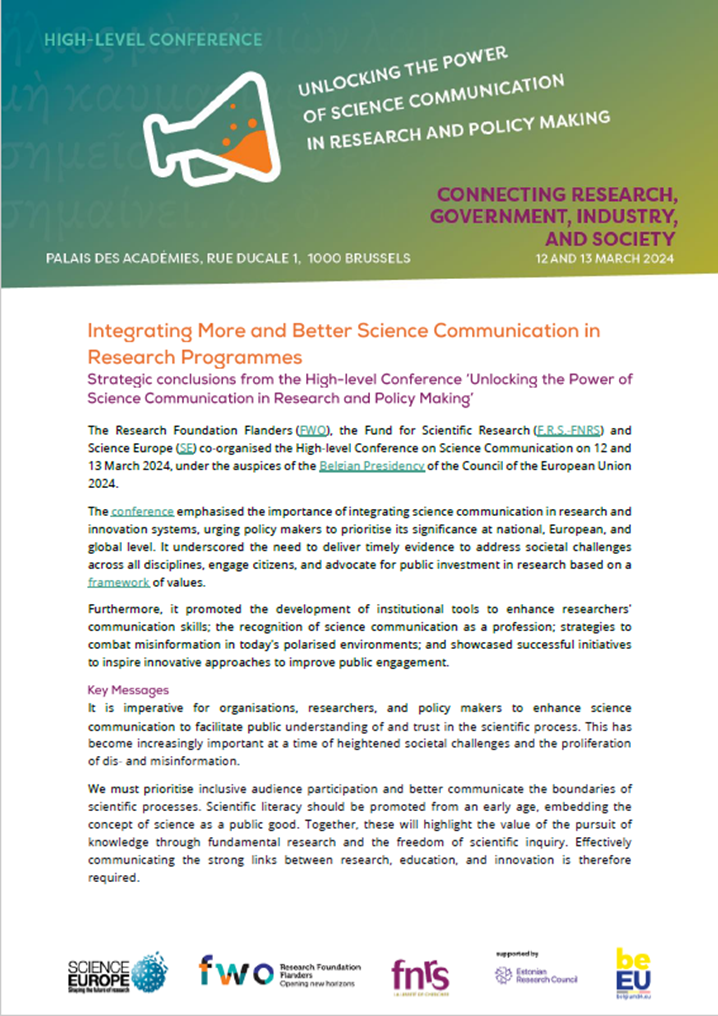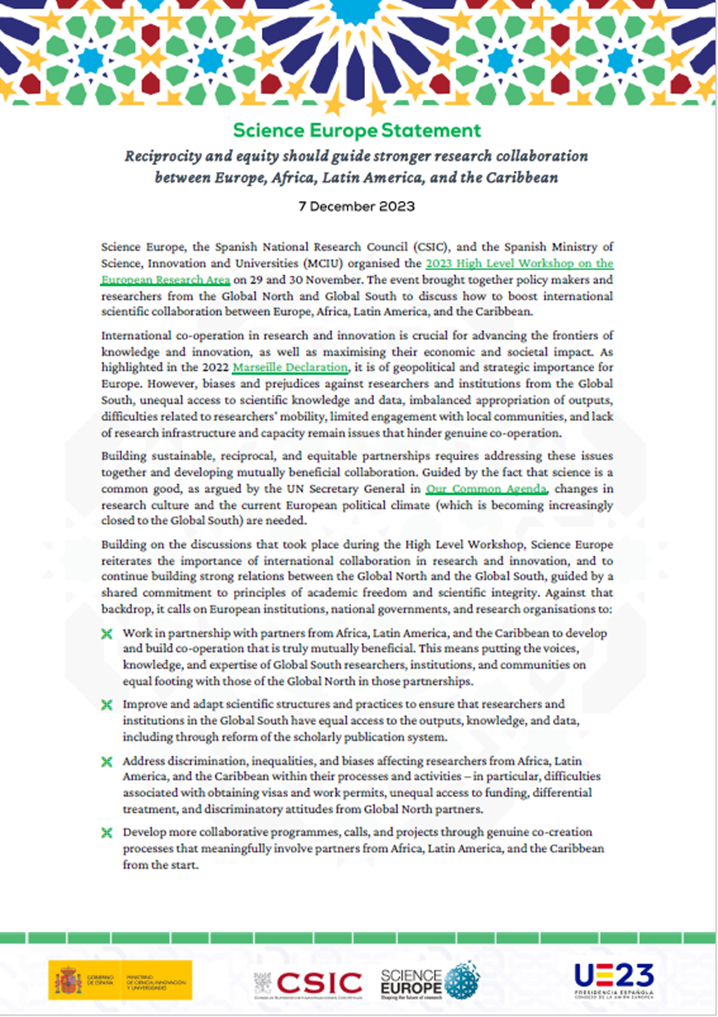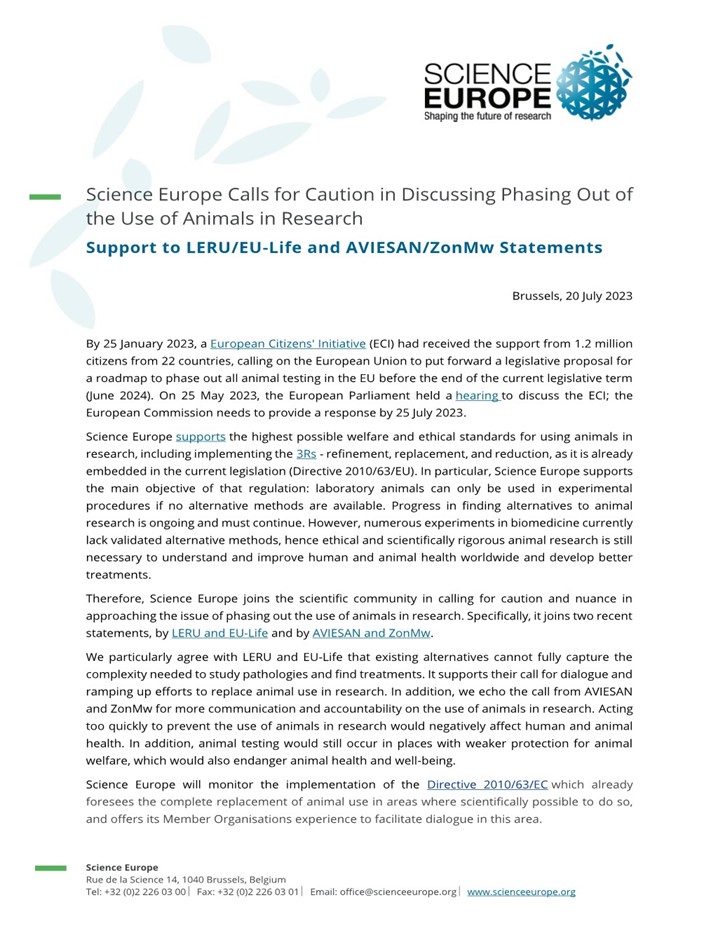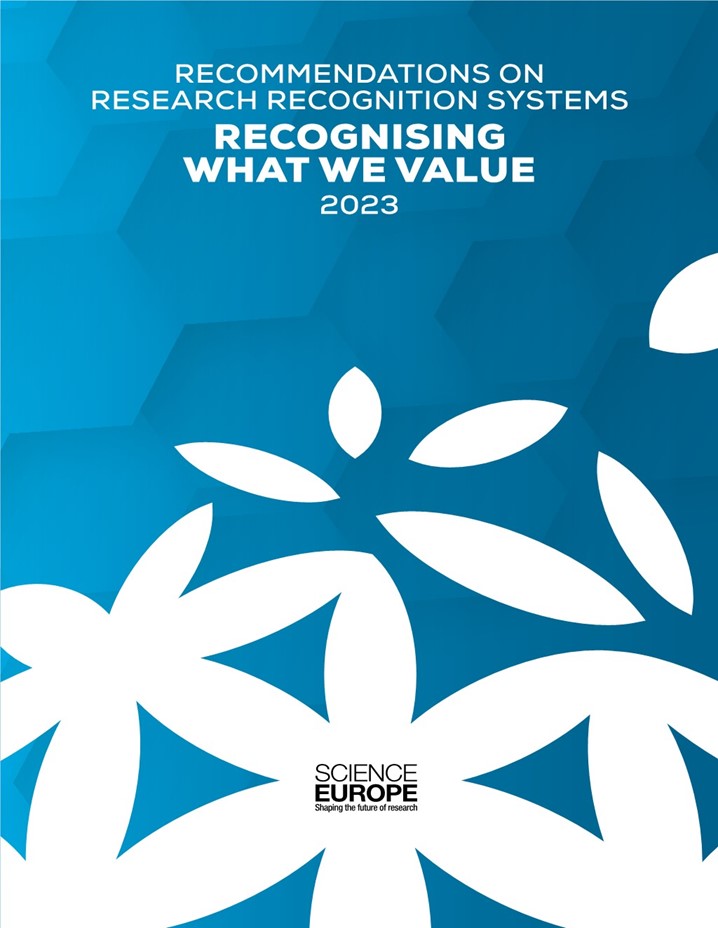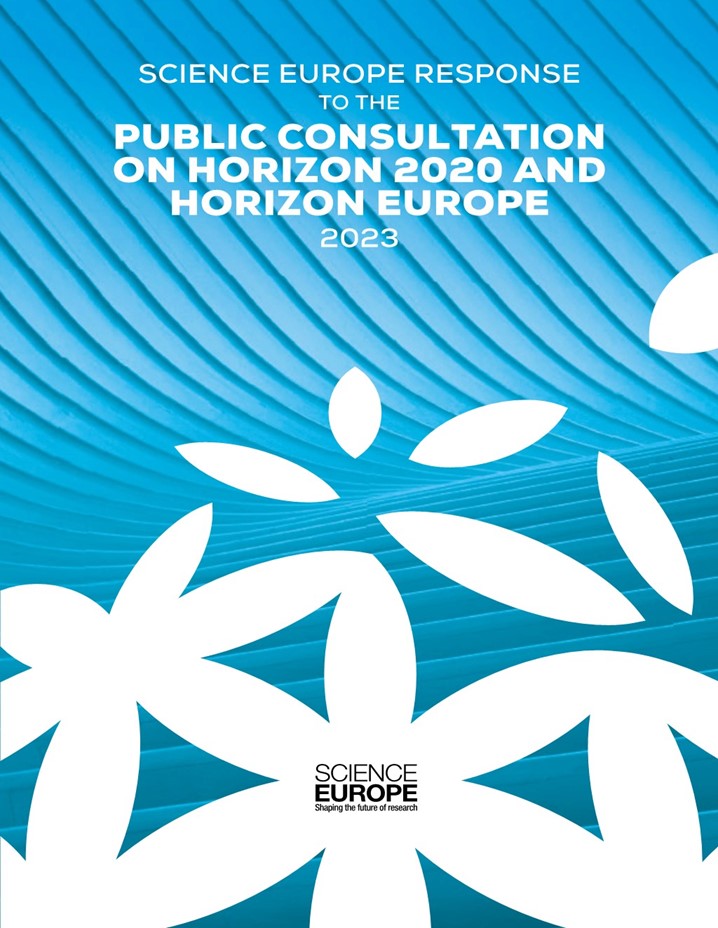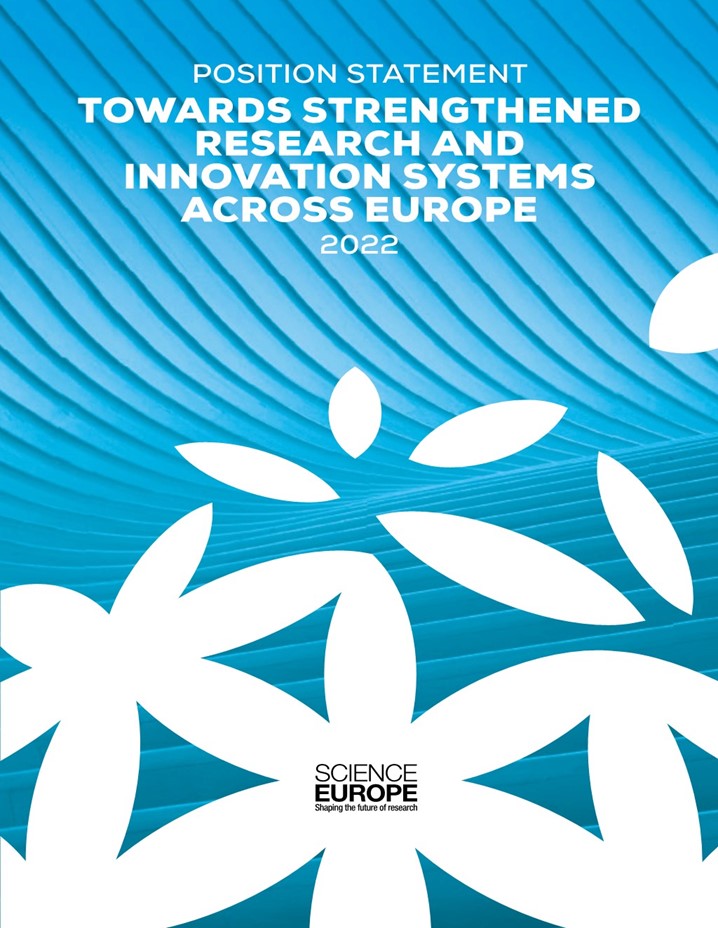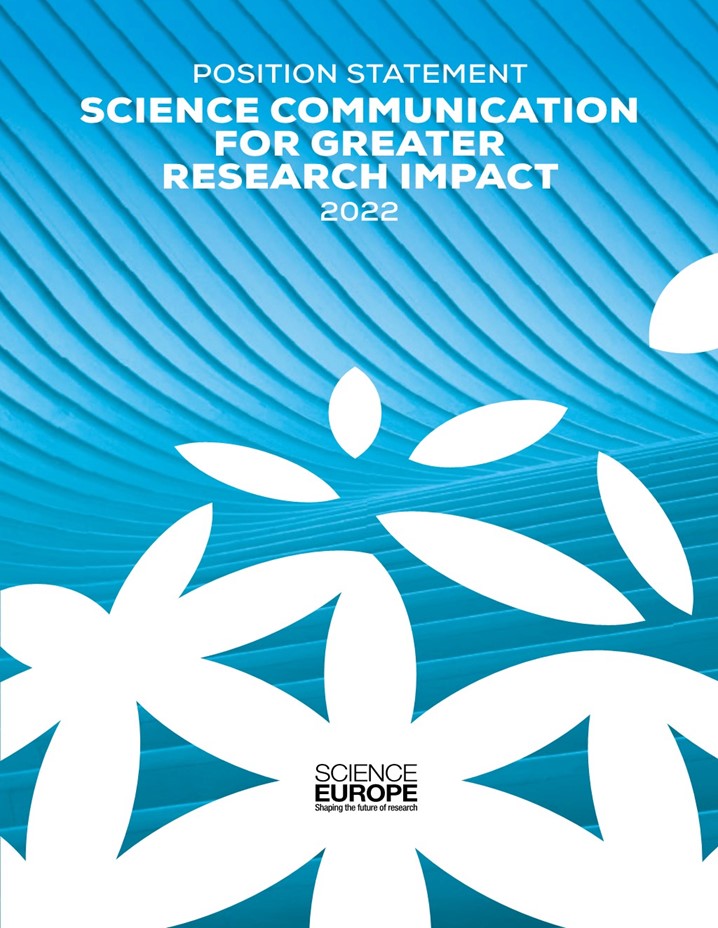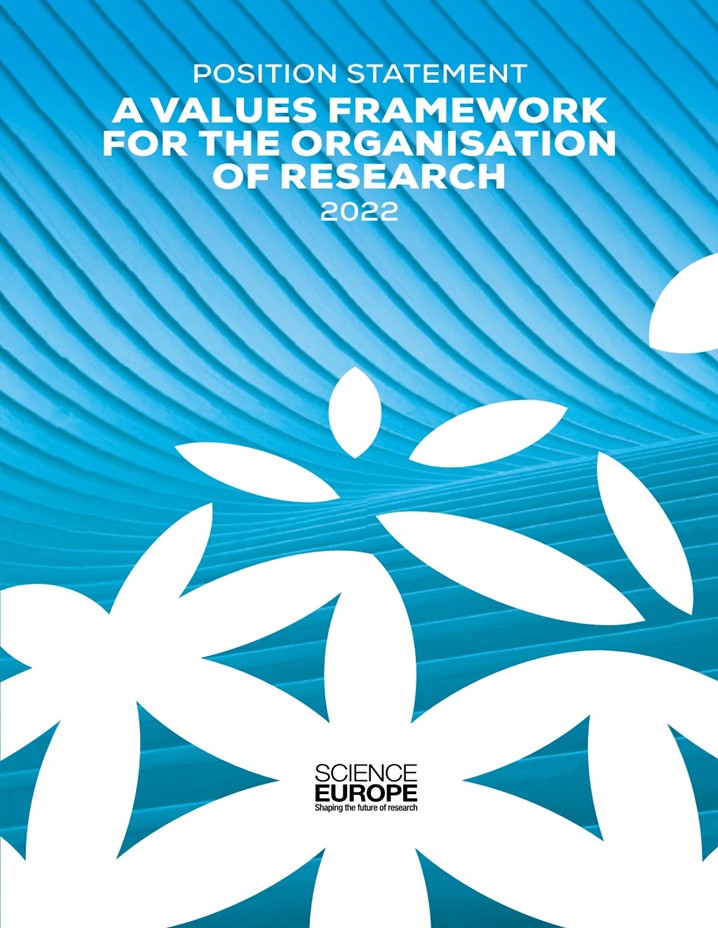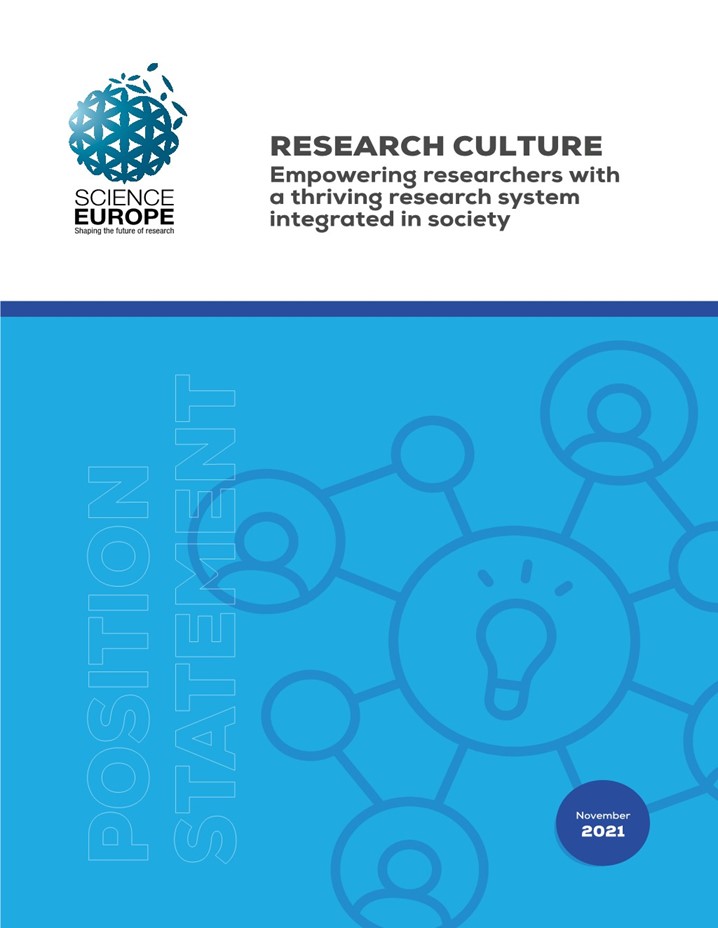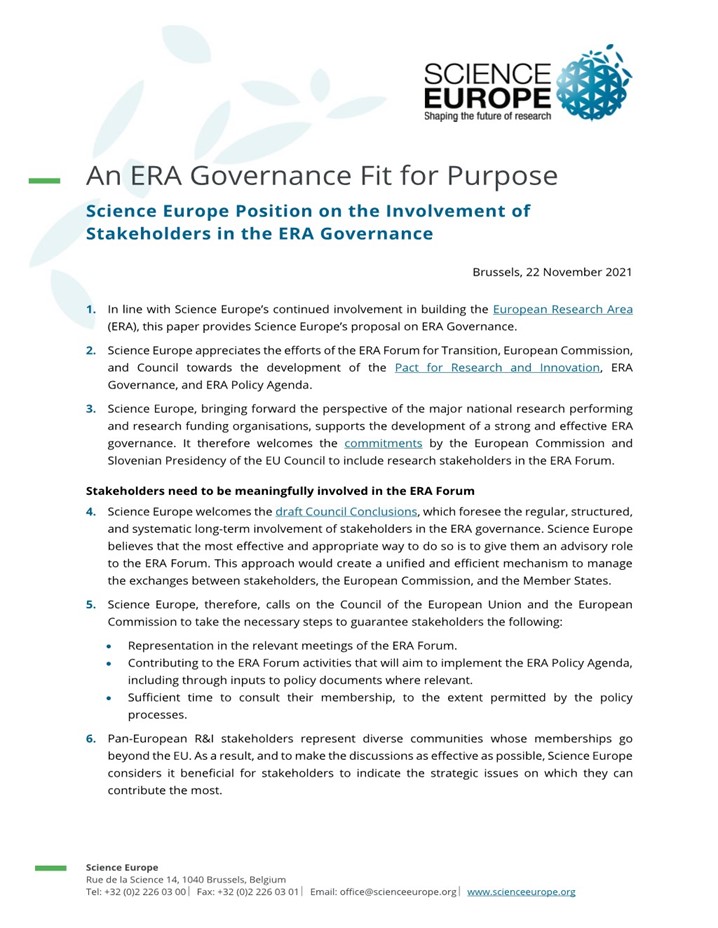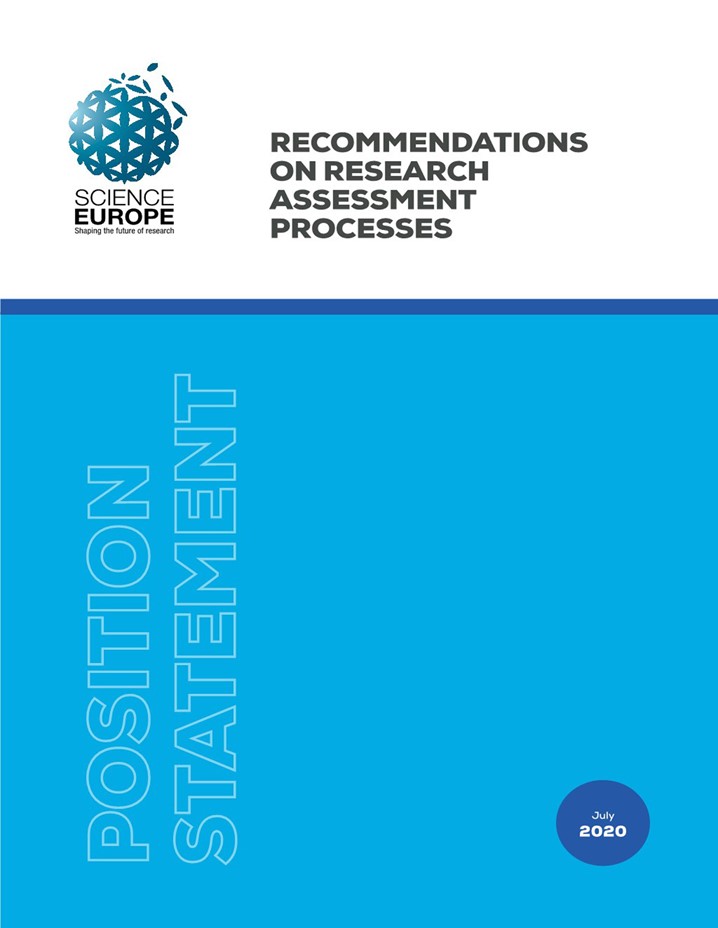Member-only content is available on this page. Please log in to view this content.

Our resources
Discover Science Europe’s comprehensive library of resources, including the most recent publications, briefings, and position statements.
45 resource(s) found
High Level Workshop Concluding Statement on a Balanced, Collaborative and Secure R&I Framework
This statement presents the overall conclusions from the 2025 High Level Workshop, co-organised by the Research Council of Norway (RCN), UK Research and Innovation (UKRI), and Science Europe on 18–20 November in Oslo, Norway.
It highlights the shared commitment to strengthening a resilient, collaborative, and secure European R&I ecosystem, and outlines the key themes that emerged from the discussions.
Recommendations on Shaping the Close Connection Between Horizon Europe and the European Competitiveness Fund
Science Europe has published a new position statement on how the next EU Framework Programme for Research and Innovation should connect with the European Competitiveness Fund (ECF) to strengthen Europe’s knowledge base and long-term competitiveness,focusing on on five key themes: Objectives; Budget; R&I Development and Governance; Association to Horizon Europe and Participation of Associated Countries; and Additional Practical Issues.
A Reliable Financial Framework and a Robust R&I Programme for Europe’s Scientific Leadership
Science Europe's initial response to the European Commission's proposals for the next EU budget and new Horizon Europe, including a set of recommendations. While the proposals provide a significant budget increase and the Framework Programme remains self-standing, further clarification on its relation to the Competitiveness Fund is needed.
Response to Consultation on MFF to support R&D and a standalone FP10
Science Europe has responded to the European Commission’s public consultation on the next Multiannual Financial Framework. It focuses on establishing a strong and ambitious MFF that strategically aligns national and EU research funding, and includes a ringfenced budget for FP10.
Working Together for a Strong and Standalone FP10
Science Europe proudly presents its statement, 'Working Together for a Strong and Standalone FP10', reaffirming the vital role of a dedicated EU Research and Innovation Framework Programme. Building on shared commitments from the European Parliament, EU research ministers, and the ERC and EIC, we advocate for an ambitious FP10 within the 2027 Multiannual Financial Framework. This programme must prioritise scientific freedom, curiosity-driven research, and a robust, independent R&I ecosystem to secure Europe’s long-term strategic, societal, and competitive future.
A Vision & Framework for Research Cultures
Science Europe presents ‘A Vision and Framework for Research Cultures’. It synthesises our recent work across numerous policy topics focussing them on the shared objective of R&I systems to advance knowledge and enable the quality and impact of research.
Science Europe Statement on International Women's Day
On International Women's Day, Science Europe reaffirms its commitment to advancing equality, diversity, and inclusion (EDI) in the European research ecosystem as an essential part of research quality. We aim to promote a research ecosystem where all scholars can realise their potential regardless of gender, sexual orientation, religion, disabilities, ethnic origin, or social background.
FP10: Beyond an Investment - Concluding Statement
Leaders and senior-level representatives of Science Europe Member Organisations met in Brussels on 18 and 19 February to discuss Science Europe’s priorities for the upcoming 10th EU Framework Programme for Research and Innovation (FP10). The recommendations in the landmark reports by Enrico Letta, Mario Draghi, and the Expert Group on the Interim Evaluation of Horizon Europe led by Manuel Heitor were taken into account. The event was kindly hosted by the Research Foundation Flanders (FWO) in Brussels, with the Commissioner for Startups, Research and Innovation Ekaterina Zaharieva participating in the opening session.
This statement presents the conclusions of these discussions.
Science Europe continues to stand with the National Research Foundation of Ukraine (NRFU) and the Ukrainian research community
On the third anniversary of the start of the war in Ukraine, Science Europe expresses its unwavering support for the National Research Foundation of Ukraine (NRFU) and Ukrainian research community.
Concluding Statement on Commitment to Strengthening European R&I
This statement presents the key conclusions from the 2024 High Level Workshop on 'Strengthening European Cohesion and Competitiveness through Research and Innovation' and a set of priorities for achieving this.
What European Research Needs
Science Europe calls for a €200 billion investment in FP10, dedicated solely to R&I, ensuring continuity and sufficient funding for basic research, collaborative projects, and innovation. Key instruments like the European Research Council (ERC) and Marie Skłodowska-Curie Actions must be preserved, with a balanced focus on low and high technology readiness levels.
Integrity at the Heart of Healthy and Effective Research Cultures
Research integrity is a cornerstone of robust and reliable research systems, and is linked to healthy research cultures, attractive working environments, and the collective goal to support high-quality research. This statements reaffirms its importance and offers recommendations to research organisations for further action.
10 Key Messages for the 10th EU Framework Programme for Research and Innovation (FP10)
This position paper discusses the successes and challenges of Horizon Europe and proposes ways forward to increase investment in R&I, while preserving academic freedom, open science, international collaboration, and R&I integration as foundational principles for the upcoming Framework Programme for Research and Innovation (FP10).
Vote for Science: 5 Pledges for Candidates of the European Parliament Elections 2024
In the run up to the European Parliament Elections on 6-9 June 2024, Science Europe has launched our 'Vote for Science' Campaign advocating for political support for science research in the EU legislative agenda of the next 5 years. In the interests of securing this support, Science Europe encourages candidates for the European Parliament to consider and commit to 5 pledges to safeguard the future of European research and innovation.
Statement on International Research Collaboration
This statement presents some of the high-level outcomes from the 2023 High Level Workshop on 'Challenges to Reciprocity and Equitable Collaboration between Europe, Africa, Latin America, and the Caribbean'.
Science Europe Calls for Caution in Discussing Phasing Out of the Use of Animals in Research
Science Europe supports the scientific community in calling for caution and nuance in approaching the issue of phasing out the use of animals in research, and endorses statements by several stakeholders.
Recognising What We Value: Recommendations on Recognition Systems
Researchers, research services, and other community members at Research Funding and Performing Organisations play a key role in establishing recognition systems through the research assessment processes that they implement. These recognition systems strongly contribute to determining what is understood as research quality and excellence. Based on the Science Europe Values Framework (published in July 2022), this paper provides practical recommendations and good practice examples detailing how research organisations can continuously improve the way they assess research and researchers. The recommendations help to embed our shared values and contribute to the evolution of research cultures in Europe.
Science Europe Response to the Public Consultation on Horizon 2020 and Horizon Europe
On 22 February, Science Europe answered the European Commission’s consultation on the past, current, and future European R&I Framework Programmes. The response, developed in collaboration with the SE Working group on Horizon Europe reflects SE Member Organisations’ opinions and concerns regarding Horizon 2020 and Horizon Europe.
Science Europe Recommendations to Reduce Research and Innovation Disparities and Foster Brain Circulation
Substantial discrepancies exist between European R&I capacities, and these are at risk of increasing. Leveraging the potential of Europe's existing talent, developing new capacities, and optimising and spreading R&I benefits are more important than ever. This Science Europe report makes a number of recommendations to support this.
Science Communication for Greater Research Impact
Science Europe launches a vision for science communication and commits to working with its member organisations to strengthen their capacity and to support their efforts to communicate research more effectively.
A Values Framework for the Organisation of Research
Science Europe launches a framework of shared values that serve as a guide to contribute to fostering a forward-looking research culture within the European Research Area, and globally.
Statement on Research Culture - Empowering Researchers with a Thriving Research System
The new statement on Research Culture envisages an ERA that focusses on the quality of research and its processes, supports scientific freedom, and promotes social diversity and inclusion, acknowledging that these conditions will, in turn, foster a productive research system.
An ERA Governance Fit for Purpose
Science Europe Position on the Involvement of Stakeholders in the ERA Governance
Position Statement and Recommendations on Research Assessment Processes
Science Europe calls on research funding and performing organisations to continuously evaluate their research assessment processes to ensure that they are effective, efficient, fair, and transparent.

